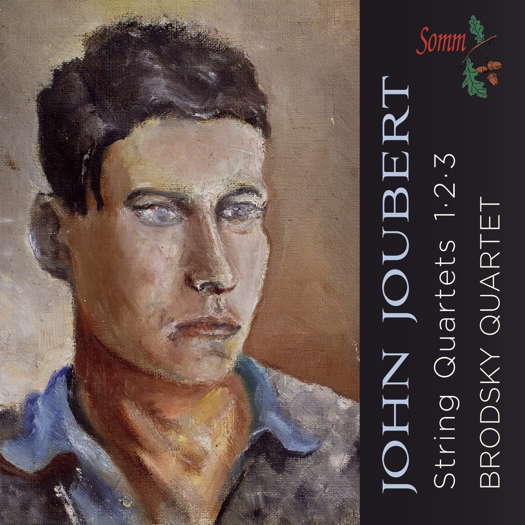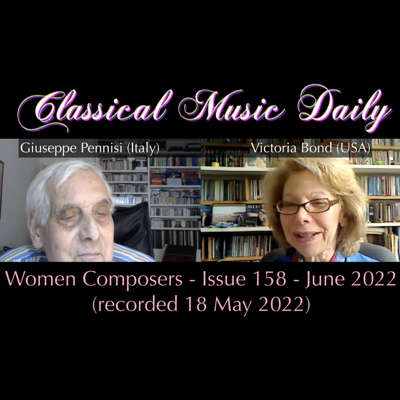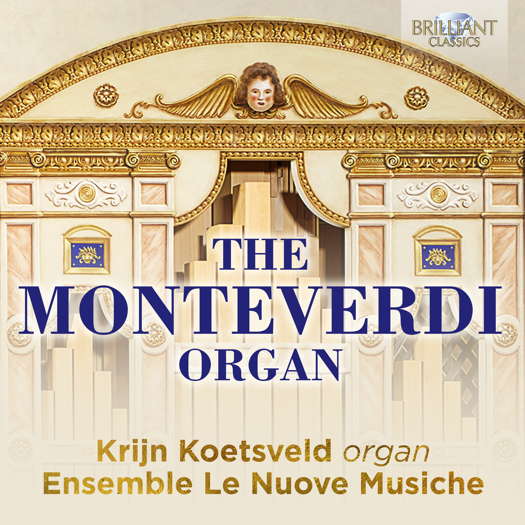 SPONSORED: CD Spotlight. A Fascinating Recording - John Joubert's string quartets, heard by Alice McVeigh.
SPONSORED: CD Spotlight. A Fascinating Recording - John Joubert's string quartets, heard by Alice McVeigh.
All sponsored features >>
- Éric Gaudibert
- Antonio Jesús Naguiat Molina
- Natalia Shakhovskaya
- Firenze
- humor
- Slovenian
- Snellman's Hall
- Cleo Lane
 VIDEO PODCAST: Women Composers - Our special hour-long illustrated feature on women composers includes contributions from Diana Ambache, Gail Wein, Hilary Tann, Natalie Artemas-Polak and Victoria Bond.
VIDEO PODCAST: Women Composers - Our special hour-long illustrated feature on women composers includes contributions from Diana Ambache, Gail Wein, Hilary Tann, Natalie Artemas-Polak and Victoria Bond.

Many Hidden Nuances
Monteverdi organ works, reviewed by GERALD FENECH
'Kriju Koetsveld is a keen advocate of this repertoire ...'
Claudio Monteverdi was born in Cremona on 15 May 1567. He undertook his first studies in his home city, and his first compositions date from this very early period. His career took flight at the court of Mantua, and he remained in this employment for a period of twenty-three years - from circa 1590 until 1613 - after which he moved to Venice, where he remained till his death. Indeed, in Venice he occupied one of the most prestigious posts that many composers craved for; that of 'maestro di cappella' at the Basilica of San Marco. His surviving letters give insight into the life of a professional musician in Italy of that period, including problems of politics, patronage and income, the latter being practically the main thorn in Monteverdi's life for much of his career. Much of the composer's huge output, including many stage works, has unfortunately been lost, but what has survived reveals a composer of supreme genius, blessed with a gift that could vividly express both the worldly and spiritual elements that are the constant features of the human condition.
Among his surviving pieces one finds nine books of madrigals, large-scale religious works, such as his Vespro della Beata Vergine (1610) and three complete operas. L'Orfeo of 1607 is the earliest of the genre still widely performed, but Il ritorno di Ulisse in patria (1640) and L'Incoronazione di Poppea (1643), both written for Venice, do get occasional revivals.
While he worked extensively in the tradition of earlier Renaissance polyphony, as evidenced in his madrigals, he undertook great developments in form and melody, and began to employ the basso continuo technique, distinctive of the Baroque. No stranger to controversy, he defended his sometimes novel techniques as elements of a seconda pratica, contrasting with the more orthodox earlier style which he termed the prima pratica. Largely forgotten during the eighteenth and nineteenth centuries, his works enjoyed a rediscovery around the beginning of the twentieth century.
He died on 29 November 1643 aged seventy-six, still hoping for a settlement of a long disputed pension from Mantua. Monteverdi's organ output, which is not substantial, has always been overshadowed by his more famous choral and operatic masterpieces, so this issue is more than timely.
Listen — Claudio Monteverdi: Laudate pueri
(track 16, 6:33-7:27) ℗ 2021 Brilliant Classics :
These organ works do not portray the composer as a real innovator of the instrument, but Monteverdi's emotional sense of beauty and his innate ability to convey an idea in musical terms are all displayed with measured precision and undiluted clarity. Also, modulations are hugely imaginative and colourful, while ornamentation, which at times is elaborate, is rich in rhythm and harmony.
Kriju Koetsveld is a keen advocate of this repertoire, and his virtuosic brilliance, added to his meticulous conducting, bring out all the many hidden nuances of these short but superbly crafted pieces.
Listen — Johann Jacob Froberger: Toccata I
(track 3, 0:00-0:53) ℗ 2021 Brilliant Classics :
This is a welcome addition to the discography of the composer that should please mostly Monteverdi admirers.
Copyright © 30 June 2021
Gerald Fenech,
Gzira, Malta

CD INFORMATION: THE MONTEVERDI ORGAN
MORE CLASSICAL MUSIC ARTICLES ABOUT VENICE


